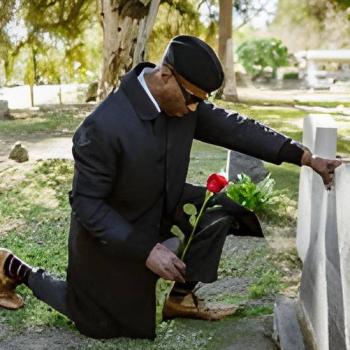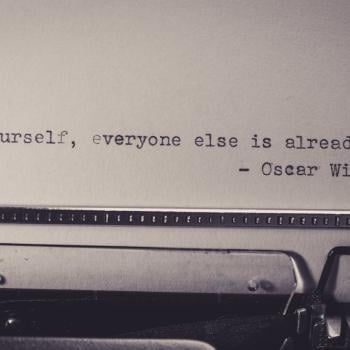A post-college group from a local church is gathered in the living room, just off that busy street, sitting on the hardwood floor where a young man knelt to promise his life to this community. This group is trying to make sense of his commitment, and those of others like him. Why would anyone promise their life to God in community? They are young professionals and graduate students, all of them shaped by a low-commitment culture that nevertheless has lofty ideals. They graduated from schools that told them either they were to go out, work hard, and run the world or they were to go out and work even harder to change it. They are ambitious young people who have, somehow, been fascinated by Jesus.
One of them, an accountant, tries to name the tension. "So, you've committed to stay here. How long are we talking?"
"We're here for life," one community member says.
She tries to clarify: "Is this like a five-year commitment? Ten years?"
"We don't know how long we'll live, but we plan to die here."
For the young accountant, this doesn't compute. She has worked hard to calculate possibilities, to manage futures, to keep her options open in pursuit of the best possible outcome. Ours is a broken world of sharp edges and hard breaks, she knows. She has read of the millions who are dying from poverty, of the wars that are raging in a dozen countries, of the exploitation in human trafficking, of our global environmental crisis. "For God so loved the world," she remembers reading also, and she knows she cannot sit idly in the comfort of her middle-class existence. Surely God wants her to do something. But in a world of so many possibilities, how could anyone commit to one place—and for their whole life long?
Saturated as our story is in covenant, the truth is that all of us—even committed, church going Christians—are steeped in a culture that is deeply suspicious of promises. The collective legal codes of cultures all around the world attest to the fact that this tendency to infidelity is not a recent shortcoming in human history. Yet, with the increasingly individualism that has emerged from a modern notion of rights and freedom, community safeguards against selfishness and abuse have deteriorated, leaving us with the sole defense of our current legal system—the contract.
To its credit, the contract is excellent at clarifying the terms of commitments. Each party to a contract knows what they are expected to do and what they can expect from others. It is written out in black and white. And because we know that people do not always do what we say we will do, our contracts also spells out terms for what will happen if any party fails to keep their promise. Ultimately, every contract has a dissolution policy that outlines from the very start what the relationship will look like if it ultimately falls apart. Every contract, then, is conditional.
God's story of covenant is an interruption to this logic. God's promise to Noah and to Abraham—to all creation and to all the children of faith—is not conditional. It is a promise that reveals something about who our God is—"gracious and compassionate, slow to anger and abounding in love, and he relents from sending calamity" (Joel 2:13).
Though the Mosaic covenant, which fleshes out life with God under a law, does depend on God's people following the good Way that is given to us, the hope of the story is not that we will buckle down and achieve faithfulness, but that a Messiah will come who can establish God's reign and that, as the Lord says through the prophet Jeremiah, "I will put my law in their minds and write it on their hearts" (31:33). We will make promises and keep them because our God is great enough to make faithfulness possible, even among broken people like us.
For the apostle Paul, the Christian life is possible only because it is a life "in Christ." Jesus matters to those who know the story of covenant because Jesus bridges the divide between Creator and creation, fulfilling in his two natures both sides of the covenant that makes us who we are.
Do those of us who have been baptized into Christ's body always keep the promises we make? No, we have not been made perfect.
Abba Macedonius, another one of the desert fathers, said, "It is the property of men to fall, and to rise again as often as this may happen." We make promises not because we will always be able to keep them, but because we trust a God who is faithful enough to always help us get up again.
This falling down and getting up, as undramatic as it may seem, is what the story of covenant teaches us to see as the most important thing any of us can ever do. If the God who created the world has indeed redeemed it in Christ, no task is more important than each of us growing up together in Christ. We do this by making promises to particular people, learning to forgive as we are forgiven, and trusting that there is enough grace to sustain us, even when we're not sure how it's all going to work out. We make promises in hope that the God who made covenant with Abraham has made faithfulness possible for the whole world in Jesus.
Visit the Patheos Book Club for more conversation on The Awakening of Hope.




